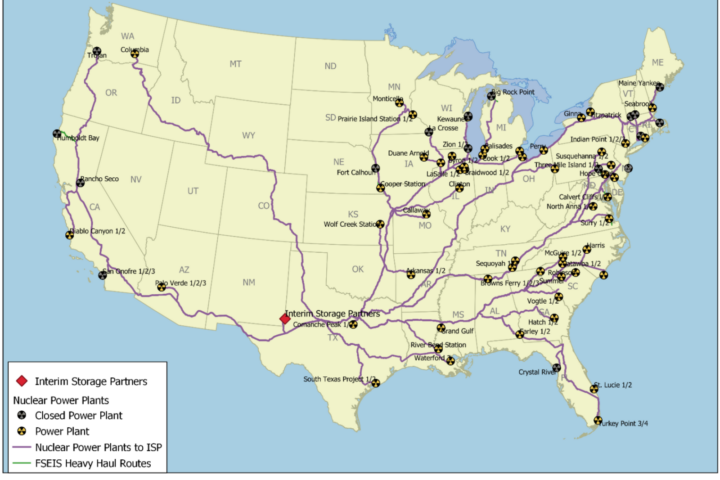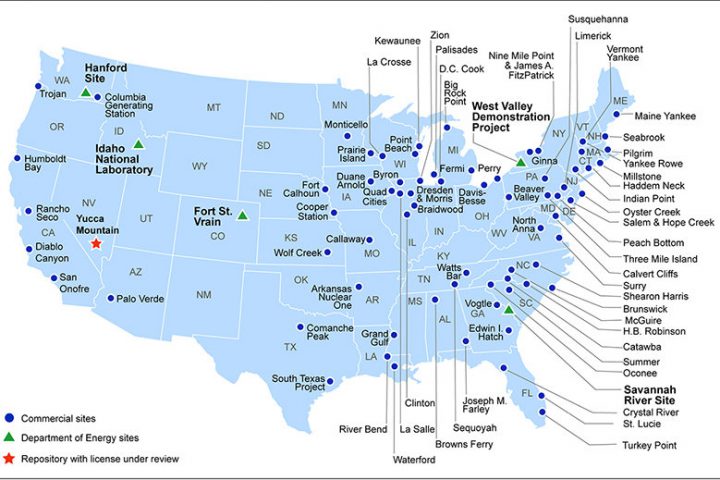“Mutually Assured Destruction” has been the MO of the world’s nuclear powers for decades. If Russia points a giant nuclear warhead toward the U.S., we would gear up to point an even more massive missile their way, and then, in theory, Russia shrugs its shoulders and says, “Eh, not worth it.” They would be completely “deterred” from advancing a nuclear attack based on the reality that doing this would mean the entire country, continent, and, ultimately the entire world, would become obliterated as we know it; the cost and the risk greatly outweigh any benefit. Supposedly. According to this thesis, the existence of nuclear weapons makes the cost of war seem frighteningly high and thus “discourage[s] states from starting any wars that might lead to the use of such weapons” (Kenneth Waltz, “The Spread of Nuclear Weapons: More May Better,”) The idea that nuclear weapons make conventional war safer is widely used as framing for why we need nukes at all, with one specific reason being spread wide and far that nuclear weapons can still be the equalizer against an adversary’s superior conventional forces.
The official NATO website was updated as recently as a few days ago (May 17, 2022), and reads in its header, “NATO is committed to arms control, disarmament and non-proliferation, but as long as nuclear weapons exist, it will remain a nuclear alliance (emphasis my own).” What happens to the theories of “Deterrence” and “Mutually Assured Destruction” when we take a closer look? What is the possibility for NATO ever disbanding because a nuclear alliance is no longer needed? If all of the over 12,000 nuclear warheads in the world somehow magically disappear, would we be better off? Or would these theories prove correct, and would World War III start imminently with conventional weapons (or sticks and stones, as the saying goes)?
A recent (May 23, 2022) headline reads, “‘Destroy whole UK in two minutes!’ Russia MP threatens nuclear strike in on-air outburst” with a summary below, “A RUSSIAN MP has boasted during a TV interview that a nuclear strike could “destroy the whole UK in two minutes” amid mounting hostility between London and Moscow.”
This article certainly doesn’t seem to bode well for the theory that nuclear weapons make conventional war safer. On the contrary, Putin has been able to escalate war with Ukraine because of Russia’s massive nuclear arsenal, not despite it. Although the risk of this conflict actually going nuclear is low, the question is undeniably raised (again, for most, for the first time since the 19050s and ’60s) if future wars could escalate beyond the nuclear threshold.
A spring 2017 paper titled, “Conventional Arms and Nuclear Peace” from the academic journal Strategic Studies Quarterly, describes how,
“For Rusia and China, threatening to escalate their way out of a conventional loss is clearly an attractive option that Russian nuclear doctrine suggests is at the forefront of Pres. Vladimir Putin’s strategic planning…In general, nuclear weapons are largely seen as an offset to superior conventional capabilities possessed by an adversary…For instance, evidence suggests that Saddam Hussein [wanted] a nuclear weapon as a means of enabling conventional attacks on Israel.” (emphasis in original)
The thesis of this particular paper actually agrees with that of the author mentioned above, Kenneth Waltz, that “more nuclear weapons in the world would tend to increase deterrence among states. That logic is turned on its head in a world with far fewer nuclear weapons and a greater reliance on conventional systems, which may actually be destabilizing.” There is a vast amount of research done on this considerably difficult topic, of the security concept of deterrence and on the psychology and ethics of the reality of an individual having the power to use a nuclear weapon, and it proves impossible to say what the modern world would look like without nuclear weapons since this has never been a reality.
In the years since America’s destruction of Hiroshima and Nagasaki, is the lack of nuclear wars attributed to deterrence only? There is another concept described by Nina Tannenwald, a political scientist at Brown University, in 1999 called the “nuclear taboo,” as something she had observed among generals, politicians and strategists. “This was not, she argued, simply a matter of general queasiness or personal moral qualms; it had important consequences.” This was a driver of peace, the “growing sense of the innate wrongness of nuclear weapons putting their use beyond the pale.” After fully realizing the horrific consequences of what nuclear weapons can do after World War II, the likelihood of their use and threats of use in war became rare. That is until now. As the Economist explains, “the mixture of treaties, fear and taboo which once kept the world safe has worn thin.”


